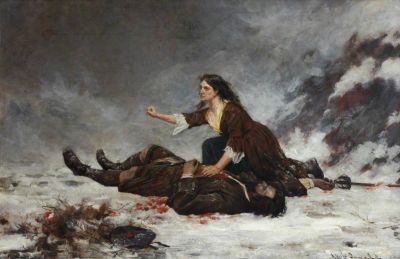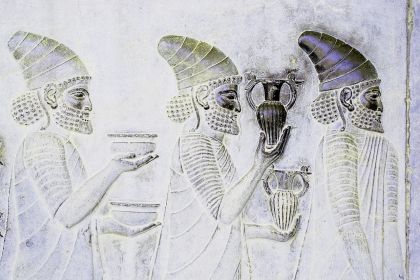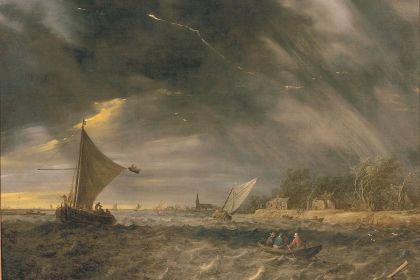Poetry
On the Massacre of Glencoe: Walter Scott lyrics set to Beethoven's arrangement of folk melody

Glencoe 1692 by John Blake Macdonald
The Massacre of Glencoe is one of the darkest chapters in Scottish history which saw the treacherous slaughter of members of the MacDonald clan over 400 years ago. The crime was committed by soldiers under the command of Archibald Campbell, a Scotsman in the service of William III, King of England and Scotland who came to power following the revolution a few years prior.
Although formally the MacDonald clan professed allegiance to the King, the latter harbored a grudge against the rebellious highlanders and went on to devise a cunning plan of demonstrative punishment for the edification of other Scottish clans. The King sent a detachment to the highlanders with a conciliatory purpose, and his soldiers stayed in Glencoe for about two weeks before Campbell received the royal letter hinting at the massacre of the clan warriors.
Reportedly, Campbell was in personal conflict with the MacDonald clan, so his interpretation of the ambiguous message was a deeply biased one. He issued an order that resulted in the murder of the chief, 33 other men, 2 women, and 2 children. The events caused a public outcry in London, forcing the King to initiate an investigation, but only Campbell was found guilty since the royal letter did not explicitly imply an execution.
The dramatic events in Glencoe formed the basis of many literary plots centered around betrayal and also received a number of musical interpretations, including one particularly outstanding song, the music for which was arranged by Beethoven, and the lyrics were written by Walter Scott.
Listen to Beethoven's The Massacre of Glencoe performed by Robert White, Yo-Yo Ma, Ani Kavafian, and Samuel Sanders:
This unexpected collaboration came about thanks to the efforts of George Thomson, a Scottish folk song collector who commissioned famous composers, including Haydn and Beethoven, to arrange some melodies from his collection for piano, violin, and cello so that they could be performed by family ensembles. Subsequently, Thomson decided that such outstanding scores needed professional lyrics and asked his fellow countrymen Robert Burns and Walter Scott to adapt folk poetry to new arrangements.
On the Massacre of Glencoe by Walter Scott:
Oh! Tell me, Harper, wherefore flow
Thy wayward notes of wail and woe
Far down the desert of Glencoe,
Where non may list their melody?
Say, harp’st thou to the mist that fly,
Or to the dun deer glancing by,
Or to the eagle, that from hig
Screams chorus to thy minstrelsy?No, not to these, for they have rest,
The mist‐wreath has the mountain crest,
The stag his lair, the erne her nest,
Abode of lone security.
But those for whom I pour the lay,
Not wild wood deep, nor mountain grey,
Not this deep dell that shrouds from day
Could screen from treach’rous cruelty.Their flag was furled, and mute their drum,
The very household dogs were dumb,
Unwont to bay at guests that come
In guise of hospitality.
His blithest notes the piper plied,
Her gayest snood the maiden tied,
The dame her distaff flung aside,
To tend her kindly housewifery.The hand that mingled in the meal,
At midnight drew the felon steel,
And gave the host’s kind breast to feel,
Meed for his hospitality.
The friendly heart which warm’d that hand,
At midnight arm’d it with a brand
That bade destruction’s flames expand
Their red and fearful blazonry.Then woman’s shriek was heard in vain,
Nor infancy’s unpitied plain,
More than the warrior’s groan, could gain
Respite from ruthless butchery!
The winter wind that whistled shrill,
The snows that night that cloaked the hill,
Though wild and pitiless, had still
Far more than Southern clemency.Long have my harp’s best notes been gone,
Few are its strings, and faint their tone,
They can but sound in desert lone
Their grey‐hair’d master’s misery.
Were each grey hair a minstrel string,
Each chord should imprecations fling,
’Till startled Scotland loud should ring,
“Revenge for blood and treachery!”
It is reported that Thomson was not entirely happy with the arrangement of The Massacre of Glencoe, considering it too complicated for home ensembles. In spite of that, Beethoven flatly refused to simplify the work as he was "certain that the slightest change would change the entire character of the composition". Soon after the publication of the song, Beethoven did write another simpler version that evaded publication and failed to gain popularity.



